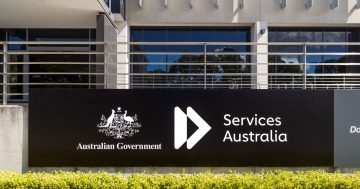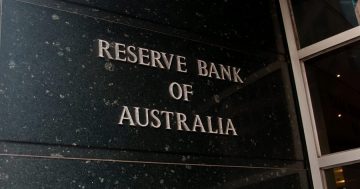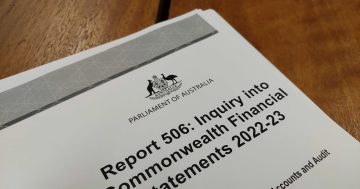
Conflict of interest management has been found to be deficient at the Australian Financial Security Authority. Photo: File.
The public service has some way to go in managing conflicts of interests if an audit of one of its small financial regulators is anything to go by.
The Australian National Audit Office (ANAO) has completed a review of conflict of interest procedures at the Australian Financial Security Authority (AFSA), which is responsible for the nation’s personal insolvency and personal property securities systems, as well as criminal assets management.
The audit found AFSA had not effectively put into action conflict of interest arrangements even in accordance with its own policies.
A non-corporate Commonwealth entity, the authority engages staff under the Public Service Act. Its officials are subject to the Public Service Act and Public Governance, Performance and Accountability Act requirements for disclosing material personal interests.
AFSA’s average staffing level was 462 in the 2024–25 Budget.
Of the 20 Senior Executive Service officers required to submit conflict of interest declarations in the 2022-23 financial year, 16 did so.
The Auditor-General found AFSA’s management of conflicts of interest had been, at best, only partly effective.
“Shortcomings in the design of AFSA’s processes for declaring, managing and overseeing conflicts of interest resulted in arrangements not being sufficient to manage conflicts of interest in a regulatory operating environment,” the audit report states.
“The arrangements in the control framework had not been effectively operationalised…
“As a financial regulator, AFSA has not sufficiently articulated conflict of interest risks and controls in its risk management artefacts nor identified regulatory capture as a risk.
“While AFSA has developed arrangements for declaring, managing and overseeing conflicts of interest, there were deficiencies in the arrangements and documentation was out of date.”
The audit found there was no single point of contact or business area in AFSA with full visibility of conflict of interest arrangements to enable the authority to assess and manage risk at an enterprise level.
Neither had it maintained a register of declared conflicts and associated management action plans.
“AFSA’s management of conflicts of interest was partly effective and not consistent with its own policies,” the audit report states.
The report points out a conflict of interest for Australian Government entities can occur between the public duties and personal interests of a public official. For example, an official may hold shares in a company they are regulating or from which they are procuring services.
An official on a recruitment panel assessing an application from a family member is another example of a conflict of interest.
“Conflicts of interest can be real, apparent and potential,” the report states.
“Real conflicts of interest occur when personal interests improperly influence officials in performing their public duties.”
Noting regulators face “inherent conflict” in their objectives and in client and stakeholder needs, the report stresses one of the most important aspects of “good regulations, confidence and integrity” is maintaining a balanced system.
AFSA accepted and agreed to the ANAO’s four recommendations that the authority:
- Documents conflict of interest risks and controls as part of its risk management framework to support improved oversight and assurance over related risks and controls;
- Implements arrangements to improve coverage of management of conflicts of interest across its operational environment, including implementing a conflict of interest policy and related guidance that are reflective of its operating environment;
- Documents and implements recordkeeping arrangements for conflict of interest declarations and management action plans to support improved oversight and management of conflicts of interest, and to enable it to assess and manage conflict of interest risk at an enterprise level; and
- Improves its training and education arrangements to promote awareness of, and compliance with, obligations relating to conflicts of interest. This should include monitoring and reporting arrangements for training completion.
Responding to the ANAO report, AFSA chief executive Tim Beresford said:
“As the regulatory steward of Australia’s personal insolvency and personal property securities systems, ensuring trust and confidence in our work through the highest integrity standards is vital.
“Subsequent to the period examined by the audit, the agency has undertaken a number of activities to ensure we have foundations in place that uphold the integrity, accountability and transparency of our operations, support the delivery of our regulatory priorities and set a strong cultural tone regarding the importance of integrity in our practices and conduct.
“We welcome the work of the ANAO in further strengthening the transparency and accountability of our arrangements to prevent and manage conflicts of interest.
“The agency agrees with all recommendations, with work already progressing to address these.”





















